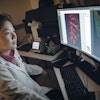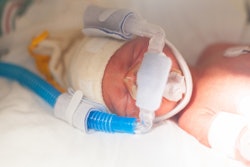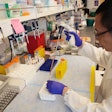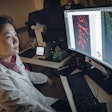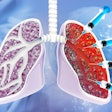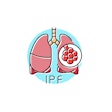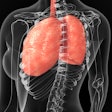
New science suggests the ‘age’ of our organs may help predict the likelihood of developing certain health conditions later in life. A research team from University College London (UCL) published their findings in The Lancet Digital Health.
According to the study, accelerated aging of the body’s organs impacts disease risk, such as lung cancer. And this information can be determined by a simple blood test.
“We found that a quick and easy blood test can identify whether a specific organ is aging faster than expected,” said lead author Mika Kivimaki, PhD, in a UCL news release. “In years to come, blood tests like this could play a crucial role in preventing numerous diseases.”
 Mika Kivimaki, PhDUniversity College London
Mika Kivimaki, PhDUniversity College London
The scientists then compared the calculated biological age of each organ to a person’s chronological age, measuring the gap to determine aging markers for a specific organ. They found that an individual’s organs age at varying rates.
“Our organs function as an integrated system, but they can age at different rates. Aging in particular organs can contribute to numerous aging-related diseases, so it’s important for us to take care of all aspects of our health,” said Dr. Kivimaki, who is professor and chair of social epidemiology at UCL.
Additional data revealed organs that age at accelerated rates can increase a healthy person’s risk of developing a set of 30 different diseases in a range of approximately 20 years. So, a person whose lungs age more rapidly has an increased risk of respiratory conditions, such as infection, COPD or lung cancer. Similarly, someone whose heart has a higher biological age is more likely to develop cardiovascular disease.
By the conclusion of the follow-up period, most participants had been diagnosed with at least one of these aging-related conditions. At this point, the individuals had aged by 20 years and were between 65 and 89 years of age.
Other interesting discoveries included:
- Dementia was more prevalent in people whose immune system aged at an increased rate, rather than their brains. Scientists believe this is because infection and inflammatory problems are important factors in the development of neurodegenerative diseases.
- Kidney conditions were linked to increased aging of more than the kidneys. In fact, accelerated biological aging of nearly all organs was linked to kidney disease. People who had type 2 diabetes, liver disease or vascular disease were also more likely to later develop kidney disease.
“Organs function in close coordination, so accelerated aging in one organ can impair the function of others, which may explain why people with a rapidly aging organ were particularly prone to experiencing multiple age-related diseases across different organs,” said co-author Tony Wyss-Coray, PhD, who is the D.H. Chen Distinguished Professor of Neurology and Neurological Sciences at Stanford Medicine and the director of the Phil and Penny Knight Initiative for Brain Resilience at Stanford University.
According to the researchers, prior practice relied on individual collection and measurement of blood biomarkers, which was inefficient and expensive, especially because biomarkers frequently fluctuate in response to lifestyle, environment, medications and illness. Now, with technology innovations, a single blood sample can be used to measure thousands of proteins simultaneously, which provides a valuable view of the aging process.
Study participants were part of the Whitehall II observational cohort study, also known as the Stress and Health Study, which the UCL Institute of Epidemiology & Health Care initiated in 1985 to better understand social factors that contributed to health inequalities. Today, the longitudinal, interdisciplinary aging study includes data on chronic disease, cognitive function, physical function, mental health and social determinants of health.
The research team included experts from UCL Brain Sciences and the UCL Institute of Healthy Aging, as well as scientists from Stanford University, Inserm and the University of Helsinki.
“I believe that in the future of health care, the prevention of age-related diseases could begin much earlier, prioritizing those who would benefit most and tailoring interventions to individual risk profiles,” said Dr. Kivimaki, who is also the current director of the Whitehall II study.
“We hope our findings could contribute to new ways of helping people stay healthy for longer as they age,” Dr. Kivimaki said. “Blood tests may advise whether a person needs to take better care of a particular organ and potentially provide an early warning signal that they may be at risk of a particular disease.”




